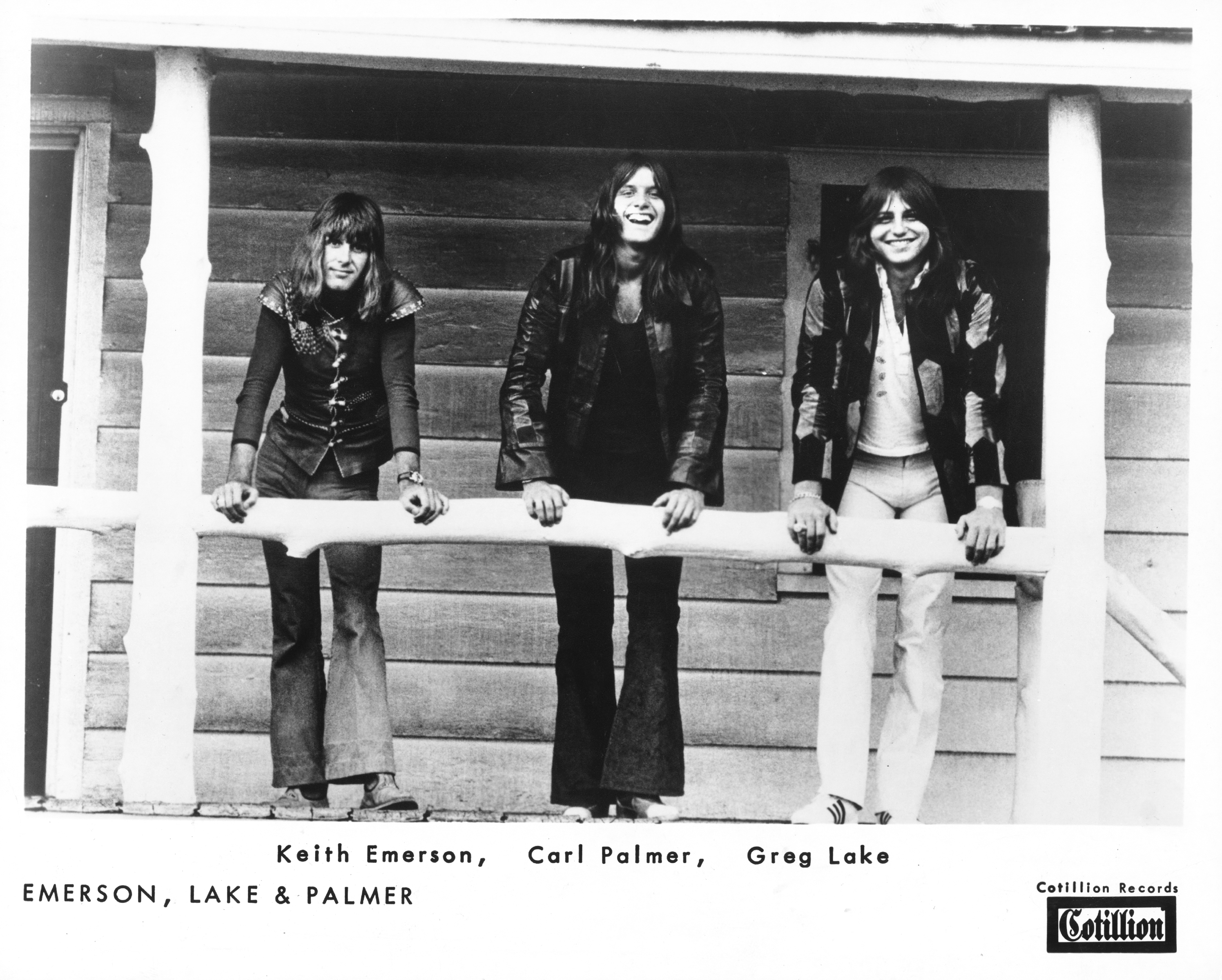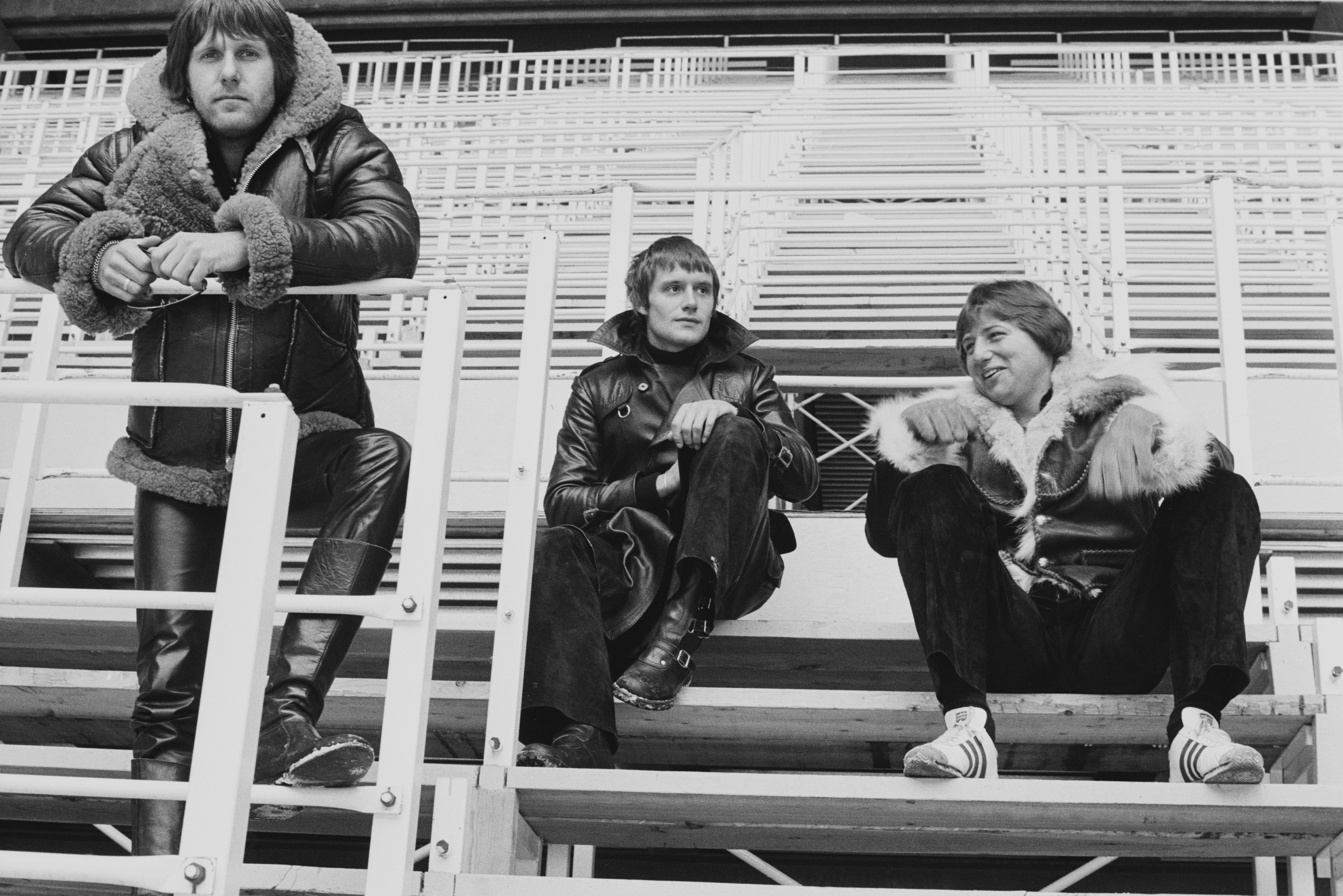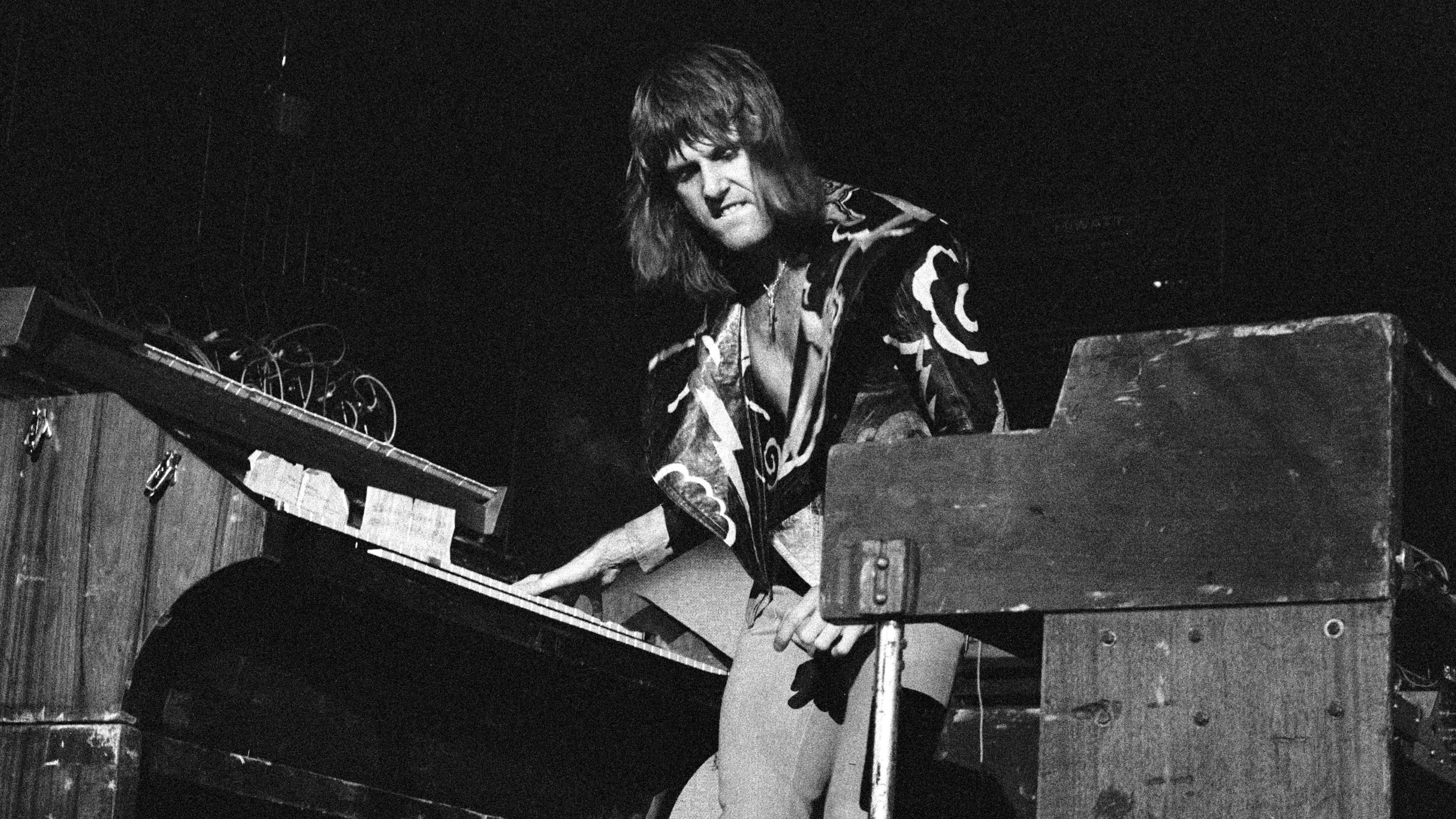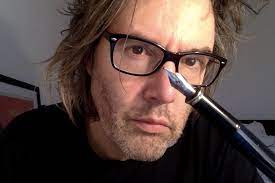Danny Baker is having something of a reverie.
“That first ELP album, I remember that opening,” he hums a series of notes, “And it wasn’t that complicated an opening to an album, not like Yes or something, but it wasn’t an easy listen by any means, and thinking it was never going to be popular, which was important to me then, but I just remember sitting there in my mate’s bedroom and thinking that ELP sounded like nothing I’d ever heard before.”
We’re sitting in the corner of a West End pub, Baker’s fresh off air from his daily afternoon show on BBC London. He’s busy planning his trip to the World Cup for a month to cover the tournament for BBC Five Live where he does a Saturday morning show – the theme tune of which happens to be ELP’s Hoedown. He’s also working on his long overdue autobiography plus it’s his turn to pop into Waitrose on the way home, as he has to get the tea. Get him talking about ELP, though, and the TV and radio presenter and writer who helped found the infamous Sniffin’ Glue fanzine and made his name at the NME lets the years fall away to happy reminiscing.
“I think they were first and foremost a live group,” says Baker, pulling at his pint. “That’s why Pictures At An Exhibition worked so well. I went to see them at the Pavilion in Piccadilly, they did a whole week there I think, and I’d never seen anything like it. I was only 14 and quite susceptible, but I’d seen Johnny Winter and Ten Years After, Peter Green’s Fleetwood Mac, I knew what live concerts were about. But I had no idea; I didn’t stop shaking for days. I’d never heard anything like the synthesizer played like that, the way it looked too, so exciting to see.
“It took the wind out of my nose, I couldn’t believe improvising like that and Carl Palmer’s drumming and the sound of them, the look of them was something, those banks of synthesizers, I’d never seen anything like it. I went with three friends and we were all in shock. I saw them again after that, the Hammersmith Odeon, the Oval. I’m not denying that they blotted their copybook with the stuff they did later, but if they’d split up after those first three or four albums they’d have been as revered today as King Crimson are.”

All of this might come as something as a surprise to those who assumed Baker was at the vanguard of punk rock.
“Punk rock was never a big bang, it was a full stop, the latest and probably the last movement of that extraordinary period. People forget that there was really only six or seven years between the end of Woodstock and the Sex Pistols,” says Baker, “and in that period you had the birth of heavy metal with Black Sabbath, the singer/songwriter thing with James Taylor, the second rise of reggae with dub coming through, glam rock, you’d had form, after form, after form just tumbling out, Kraftwerk, prog rock, so when punk rock came along everyone was a bit bored because nothing had happened for three or four months.
“People who say that nothing was happening around 1974, that’s not true, you had Dr. Feelgood, Roxy Music, Todd Rundgren, there was loads happening. Punk came through it, but punk wasn’t a reaction of the masses, it was the condescendiente, it was only television that opened the door, the Bill Grundy thing, and it was very opportune. It was alright, but I tell you what, it wouldn’t be any punk album I’d reach for if the house was on fire, it’d be something from the earlier 70s, when music was such a multi-headed hydra. What ELP were doing on those early albums was worth more than the Damned’s first album, it’s worth more than what the Sex Pistols were doing or ever did. I know there was a musical evolution involved, but I can’t play Bodies by the Sex Pistols, I’m 52, but I can play Take A Pebble.”
ELP have been very nearly airbrushed out of history, derided and vilified as shorthand for musical and artistic excess and by the band’s own admission they might have overstayed their welcome as their musical star waned. While Baker will agree with that latter assertion even he’s mystified why they’re still so loathed.
“People who never even saw, never even listened to them suddenly dismissed them as dad rock,” says Baker, waving his pint glass around for emphasis, “No-one would admit to liking them, but somebody bought all those copies of Tarkus. It did become this thing that you had to dismiss it as bit of juvenilia and it wasn’t; it was magnificent.
“It was a scandal when Island Records had their big anniversary for their label, the 50th or whatever is was, and King Crimson were lauded – fair enough, yes – but ELP almost dismissed. There would be no Nick Drake if it wasn’t for ELP because they bankrolled Island for years, their albums were selling like gangbusters. I loved him, but Nick didn’t sell records and ELP sold, Tarkus sold, Pictures… sold and Trilogy really sold and they kept Island going, and allowed them to say things like, let’s get this Jamaican band in called the Wailers. Musically that might not count for much, but I don’t understand how they became a joke, pariahs, that they were considered to be nothing when they were quite clearly something, it was extraordinarily experimental; I preferred Tarkus to any Can album.

“Saying all of that, they never really made a whole album, side two of Tarkus doesn’t really exist. They were plainly a group who were constantly on the road and didn’t have time, they couldn’t live up to their brief, they plainly made Tarkus from a thousand edits; it doesn’t make any sense. There’s light and shade in there, there’s humour, there’s bits you have to go with, but that signature thing at the beginning, it just used to bring my heart into my mouth when they played it live. When they said they were going to play Tarkus, you’d think, here we go. Tarkus does have what might be one of the worst covers in rock music, though ELP are not alone in that, especially when it comes to heavy metal covers too. If only they’d released that album in a plain white sleeve…
“Now they’re back again they need to say, we’re playing our first two albums tonight and that’s that. They’ve become shorthand for something like your first girlfriend or wearing the wrong clothes and it’s not fair.” He swills the beer around in the base of his glass and finishes it with a gulp.
“Not that it needs validation if you enjoy it that much, but the simple fact is, like anyone’s iPod, you wax and wane with the music on there, but I would never take those early ELP albums off. And it’s not just nostalgia, I love listening to them. I love sitting on the Tube, hearing those incredibly complex time signatures, those arrangements, that still thrills me, it’s so bold.”
This article originally appeared in Prog #16.

